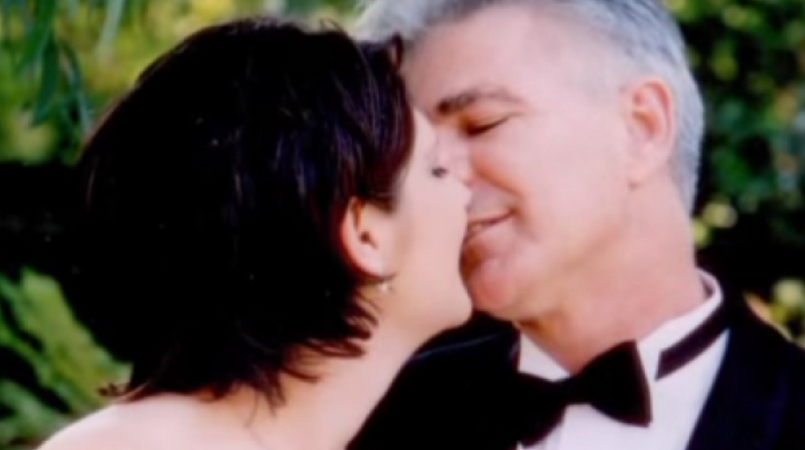
Dipping your toes into the virtual pool can be a terrifying prospect for many seasoned singles, let alone someone taking the first tentative steps towards new love in the wake of a partner's death.
When Sophie Townsend, a widowed mother-of-two, began to navigate the trails of virtual matchmaking, she uncovered a weird world inhabited by faux feminists, shocking spellers, and a meat-loving "vegan" who refused to eat during a dinner date as he'd just devoured a banana.
A few years had passed since her husband's death when friends of the Sydney-based author and creative audio specialist, started urging her to "get back out there".
"Compared to 'out there' I kind of quite like 'in here'," she said.
"'In here' is where you put on your jim jams and eat your secret stash of Tim Tams."
Don't say the 'W word'
It had been decades since Sophie had been single so any kind of dating seemed surreal.
Her experience of dating was that it was relatively effortless — she basically tripped over her husband at work and the relationship went from there.
"I miss my husband desperately and always will," she said.
"The hardest thing about dating as a widow? I don't know — when you say the word, 'widow'.
"It's pretty heavy. I think it scares people sometimes — it's such a big, defining moment in my life, and anyone new feels that.
"On an online profile, you don't use the 'W word', because, let's be honest, it's not such a great drawcard. And fessing up on a first date it feels rather a passion killer.
"Only the most insensitive of chaps don't ask you questions about it, and there you are, explaining how he died, and what happened and how much you loved him, and you're trying not to cry, and he's trying to extricate himself from the conversation without looking like a jerk, so it's difficult."
Then there's the added complexity that Sophie didn't really end her previous relationship.
"My husband is always there, and unlike a divorce, we never hated each other, we never left each other voluntarily. It makes life for the next bloke tricky."
Going back 'out there'
Sophie found online dating had changed dramatically in the decades since she was last dating.
The people she once associated with online dating were all "creepy losers", but these days "everyone's online".
"I think we've collectively decided that we can no longer meet people through friends or work or at bars," she said.
The number of people looking for love online surprised her — but bigger surprises were still to come.
The first thing Sophie noticed about the new world of online dating was the shocking spelling.
"There I am trawling through people's profiles picking up little typos and grammatical errors, at the same time thinking, 'this is why I'm going to die alone'," she said.
She did match with some prospective partners, but found things weren't always black and white.
"My favourite was 'feminist man'. 'Feminist man' was 53 and looking for a slim attractive woman under 45 or in pretty good shape if over," she said.
"And I thought to myself, 'something's happened to feminism'."
'I can't continue'
Sophie ditched the virtual world after a sum total of 18 hours, before serendipitously meeting a man in real life.
When that didn't work out, she went back online.
Her next dating experience was with a man who'd written himself up as liking vegan food.
"I thought I like vegan food but I also like meat," she recalls him saying.
Turning up to the date in a leather skirt was possibly the deal-breaker for that prospective relationship.
Not to mention her date's declaration that he'd had a banana in his room before dinner and wouldn't be ordering off the menu.
"I thought 'I can't continue' and left," Sophie said.
She has come to the conclusion that for her, online dating doesn't work.
"Obviously there's evidence that people find love, and I know people who've found love but for me dating never worked," she said.
"I'd be in my village and a man would walk through my village and he'd be part of the village — I always found boyfriends through work or university.
"I think it's that anonymity that doesn't work for me but also my incredibly high standards and pickiness."
